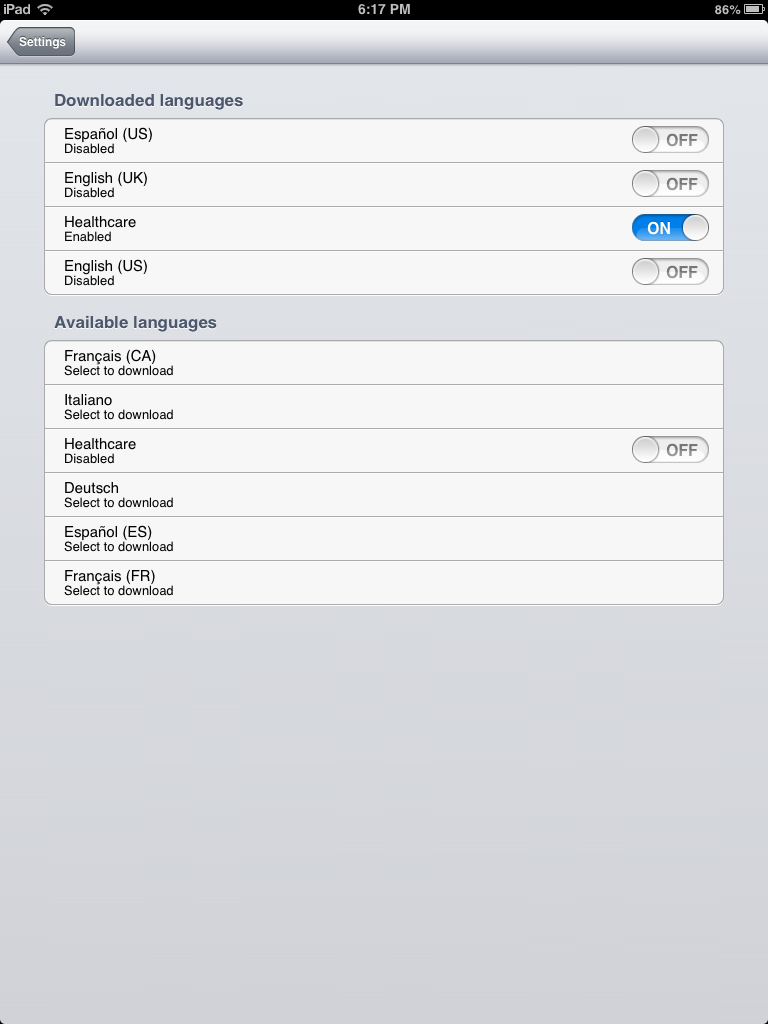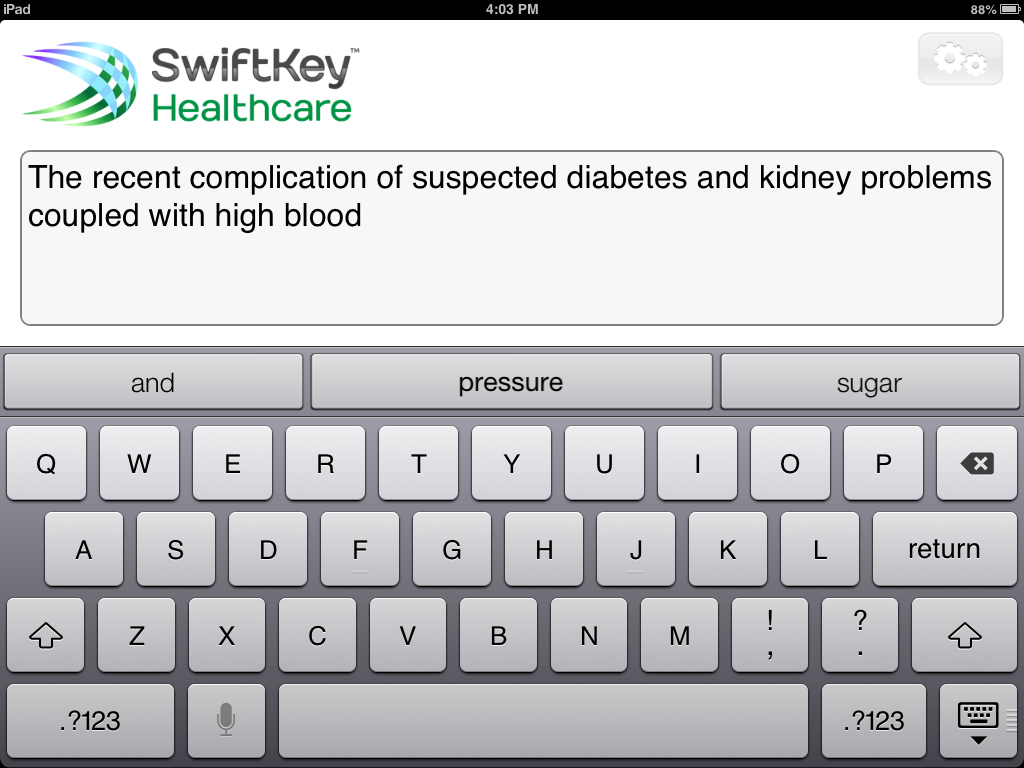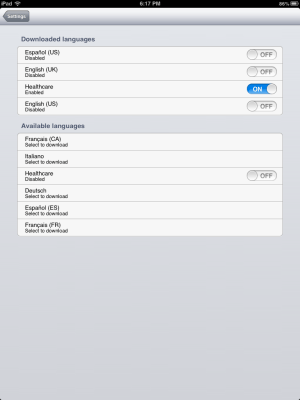Switftkey — the intuitive typing interface for smartphones which has made its way into some Android phones and is reputedly behind the new BlackBerry touchscreen keyboard (though the company declines to comment or confirm) — is edging closer to the iOS platform. Today it announced exclusively with TechCrunch at Mobile World Congress in Barcelona, that it is launching an iPad typing app aimed at the lucrative Healthcare market.
But what is more tantalizing than the niche healthcare application however is the prospect of a Swiftkey iOS app arriving on the Apple App store. Swiftkey’s full-blown English language prediction engine is incorporated into the medical version of the app and it’s easy to switch off the Medical language and switch on the general purpose English mode. All of a sudden I could foresee anyone downloading this app and simply using it to make notes then cut and paste the content into other apps or documents. That is, if Swiftkey releases the app. If it did, this would bring perhaps the most sophisticated intelligent keyboard out there to iOS, and perhaps lead to users clamoring for Apple to license the technology. We can but hope.

As we reported mid-way last year Swiftkey Healthcare has until now been an Android-only implementation designed to allow doctors and other healthcare workers to quickly make notes on patient treatments. The drawback of course is that the vast majority of hospitals and medical institutions have gravitated towards the iPad. The new iOS app for iPads addresses this. But for now the technology remains available only to third-party medical applications used in places like hospital wards, such as by Bayada and the VNA nursing association in Maryland.
UK-based Swiftkey claims use of its keyboard can halve the time it takes for clinicians to make notes on patients – and time as we know is money.
The artificially intelligent keyboard predicts what you are going to type based on what you start to type and what it already knows about your writing. It both corrects words and suggests the next word. Alternative products include Slideit, Thumb Keyboard and Smart Keyboard, but the market seems to be turning into a face-off fight between Swype and Swiftkey.
Swype’s owner Nuance has incorporated the firm’s Dragon speech recognition functions, letting users dictate text rather than type it, but this doesn’t work in a healthcare setting where doctors do not want to have to dictate treatment notes in front of the patient.


